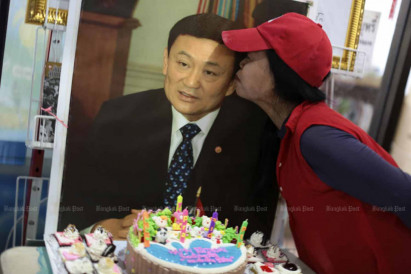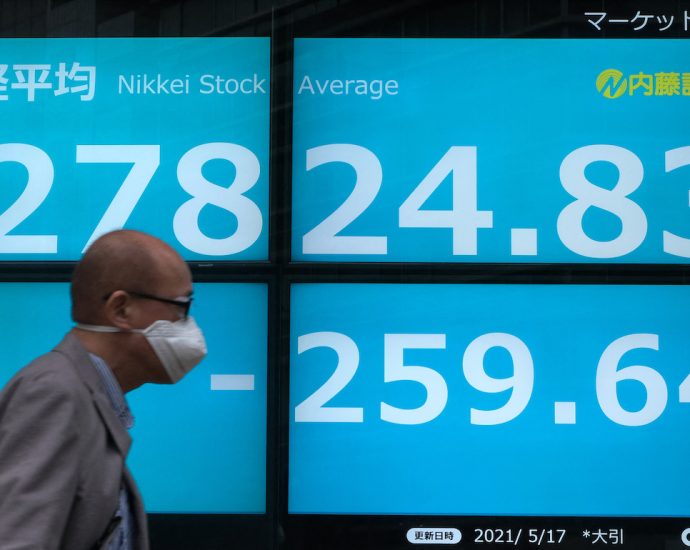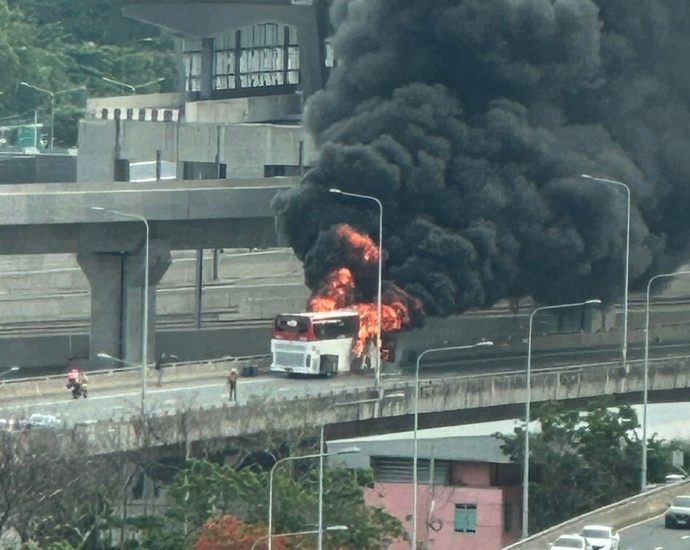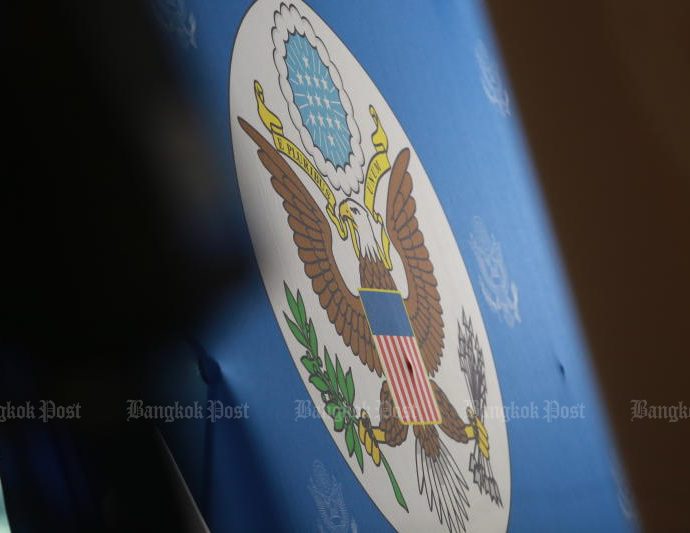World’s first vaccine against deadly swine fever nears approval in Vietnam
NO SAFETY ISSUES United States Department of Agriculture (USDA) researchers have reviewed the results of one of the vaccines, NAVET-ASFVAC, which they co-developed with Vietnamese company NAVETCO, a USDA spokesperson said. After the vaccine showed a high level of efficacy and no safety risks in trials, 600,000 doses were approvedContinue Reading
Indian train service to resume after deadly crash
KOLKATA: One of the train services involved in a triple collision in India’s deadliest railway disaster in decades was set to resume Wednesday (Jun 7), as officials revised the death toll up to 288. “The Coromandal Express is back on track,” railway spokesman Aditya Kumar Chaudhary told reporters, with theContinue Reading
Thaksin’s planned return ‘depends on situation’
Country must first be free of conflict, says daughter Paetongtarn

Former prime minister Thaksin Shinawatra still plans to return in July but when this will actually happen depends on the situation in the country, his daughter Paetongtarn Shinawatra said on Wednesday.
Thaksin was making progress in preparing for his return, and this might include liaising with the relevant government agencies, Ms Paetongtarn said at Pheu Thai Party headquarters.
Her family was also preparing for his return “in terms of convenience and safety”, Ms Paetongtarn said.
“Many forms of reception are being prepared because it is not known what will be required, or happen,” she said.
The family also awaited Thaksin’s instructions on what else should be done in readiness for his return, Ms Paetongtarn said.
For the time being, the schedule for his return remained unchanged for July. “However, it also depends on the political and national situation,” she said.
“His return is important. I’d like him to return when the timing is good and free of conflict. Suitability is a priority,” Ms Paetongtarn said.
Upon his return, Thaksin would enter the justice system regardless of what government is in power, she said.
Thaksin was overthrown by a military coup on Sept 19, 2006, while he was overseas. He has since lived in self-imposed exile, except for a brief visit to Thailand in 2008.
During his absence from the country, the Supreme Court’s Criminal Division for Holders of Political Positions sentenced him to a total of 12 years imprisonment in four cases.
In the first case, the court found him guilty of abuse of power in his then-wife Khunying Potjaman’s purchase of state-owned land in Ratchadapisek area for less than the market value. In October 2008, he was sentenced to two years in prison. The 10-year statute of limitations on the court ruling expired in October 2018.
In the second case, Thaksin was sentenced to two years in prison after he was found guilty of malfeasance in a case concerning the two- and three-digit lottery.
In the third case, Thaksin was handed down three years in rison for abusing his position by authorising loans totaling 4 billion baht to Myanmar by the Export-Import Bank of Thailand. The loans were used to buy equipment from a telecoms firm owned by his family.
In the fourth case, the former prime minister was sentenced to five years in prison when the court found him guilty of using nominees to hold shares in Shin Corp. The law prohibits any political office holder from owning shares in a telecommunications company.
The statutes of limitation for the court decisions on the second, third and fourth cases have not expired.
Air India to send plane to Russia to rescue US-bound passengers
 Getty Images
Getty ImagesAir India is set to send a replacement plane to ferry stranded passengers from a US-bound flight after its plane made an emergency landing in Russia.
The Delhi-San Francisco flight had 216 passengers and 16 crew members on board when one of its engines developed a snag on Tuesday.
The plane was forced to land at Magadan airport in the Far East region of Russia.
The details of the snag have not been revealed yet.
On Wednesday, Air India said in a statement that it would operate a flight at 13:00 India time (07:30GMT) to ferry passengers and crew from Russia to San Francisco “subject to necessary regulatory clearances”.
“The ferry flight would be carrying food and other essentials for our passengers,” the statement said.
It added that due to “infrastructural limitations” around the airport, all passengers had been moved to a “makeshift accommodation”, after efforts were made to shift them to local hotels.
“As we do not have any Air India staff based in the remote town of Magadan or in Russia, all ground support being provided to the passengers is the best possible in this unusual circumstance through our round the clock liaison with the Consulate General of India in Vladivostok, Indian ministry of external affairs, local ground handlers and Russian authorities,” the statement said.
On Wednesday morning, a Twitter user shared a video which he said was taken by one of the passengers. The footage shows passengers sleeping on mattresses on the floor, several in a single room, with their belongings next to them.
People commenting on the video criticised Air India’s service and asked why the passengers had not been given better facilities.
On Tuesday, the airline had issued a statement that the flight had made a “safe landing” in Russia after it had been diverted.
“Air India flight A1173 operating from Delhi to San Francisco developed a technical issue in one of its engines,” it said and added that the “aircraft is undergoing the mandatory checks on the ground.”
The United States said that it was keeping an eye on the situation.
“We are continuing to monitor that situation closely,” Vedant Patel, State Department Deputy Spokesperson, told reporters.
He added that “it was likely that there were US citizens on board the flight”, but said that he was “unable to confirm” their numbers.
BBC News India is now on YouTube. Click here to subscribe and watch our documentaries, explainers and features.

Read more India stories from the BBC:
- Why it took 42 years to convict a 90-year-old in India
- How did three trains collide in India?
- Haunting images of deadly India train crash in 2002
- India train crash bodies still waiting to be claimed
- In pictures: Recovery operation after deadly crash
- Why Indian politicians woo the diaspora in the US
- Kashmir battles alarming drug addiction crisis

-
-
18 July 2022

-
Why Japanese equities are attracting foreign investors

International investors are likely to increase their exposure to Japanese equities or, indeed, consider including them in their portfolios for the first time this year and beyond.
The reason is that the world’s third-largest economy is experiencing inflation that reached a four-decade high in February and continues to run hot.
Sharp price gains are rarely desirable, but Japan is an exception after bouts of deflation since the late 1980s and early 1990s.
Japan has been grappling with a persistent problem of low inflation and deflation for several decades for four main reasons.
First, it has an aging population and a declining birth rate, which has led to a shrinking workforce and reduced consumer spending. With fewer people entering the workforce and spending less, there is lower demand for goods and services, resulting in stagnant prices.
Second, Japan has experienced prolonged periods of economic stagnation, characterized by sluggish growth and weak consumer and business spending. This has limited the potential for inflationary pressures to build up.
Third, the country has one of the highest debt-to-GDP ratios among developed countries. To manage this debt burden, the government has implemented accommodative monetary policies, including low interest rates and quantitative easing. While these policies aimed to stimulate economic growth, they have not translated into significant inflationary pressures.
And fourth, Japan has faced structural challenges in its economy, such as excess capacity in certain industries, weak productivity growth, and limited wage increases. These factors have contributed to a lack of upward pressure on prices.
Economic recovery
However, in more recent times, as the economic recovery continued amid supportive monetary and fiscal policies and a surge in tourism, inflation has surged.
For this reason, cash is no longer king as the rising prices are eroding Japanese investors’ purchasing power.
As such, they’re increasingly looking for alternatives, and we expect Japanese equities are going to be the go-to as a way to preserve or even increase the real value of their investments.
Equities are often seen as a potential hedge against inflation. When prices rise, the value of a company’s revenue and earnings may increase, leading to higher stock prices.
Should Japanese investors pile into the Tokyo and Osaka exchanges, equity values will naturally increase, and this will pique the interest of international investors looking to further diversify their portfolios to seize opportunities and mitigate risk.
Japan experienced a prolonged period of economic stagnation in the 1990s and 2000s, often referred to as the Lost Decades. This era was characterized by low economic growth, deflation, and a weak stock market. The negative perception of Japan’s economy during this time seriously deterred international investors from considering Japanese equities.
In addition, historically, Japan’s corporate governance practices and transparency standards were considered relatively weak compared with other developed economies. This lack of transparency and shareholder-friendly practices made some would-be overseas investors cautious about investing in Japanese companies.
Plus, of course, equities in Japan have not consistently outperformed other global equity markets in recent years.
But as values are likely to rise as investors shed cash and fixed-income investments because of rising inflation, this trend for overlooking Japanese stocks will be reversed.
Nigel Green is founder and CEO of deVere Group. Follow him on Twitter @nigeljgreen.
Watch moment thief gives up on liquor store robbery

CCTV footage captured the moment a would-be thief was stopped in his tracks at a liquor store near Perth, Australia. The man ran for the door only to find it locked. He then returned his ten pack of bourbon and cola to the attendant at the front counter.
TikTok: ByteDance accused of helping China spy on Hong Kong activists
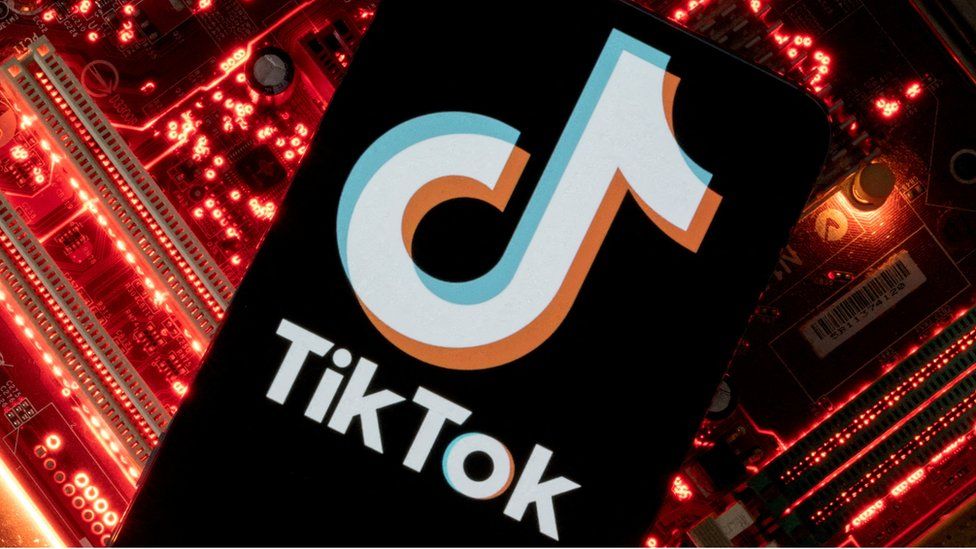 Reuters
ReutersTikTok’s owner ByteDance has been accused of allowing Chinese Communist Party (CCP) members to access the data of Hong Kong civil rights activists and protesters.
Users who uploaded “protest-related content” were also identified and monitored, former ByteDance executive Yintao Yu alleges in a US court filing.
The CCP members were also able to access US TikTok user data, Mr Yu says.
A ByteDance spokesperson denied the claims, describing them as “baseless”.
The allegations are contained in a San Francisco Superior Court filing made this week as part of a lawsuit brought by Mr Yu.
In the filing, Mr Yu claimed that members of a CCP committee had access to a “superuser” credential, which was also known as “god user”, which allowed them to view all data collected by ByteDance.
He also alleged that the committee members were not ByteDance employees but were physically present at the company’s offices in Beijing.
This was common knowledge among senior executives, said Mr Yu, who for around a year from August 2017 was a head of engineering in the US for ByteDance.
The filing also alleged that in 2018 the CCP committee members used their “god credential” to “identify and locate the Hong Kong protesters, civil rights activists, and supporters of the protests”.
Hong Kong saw huge protests in 2014 – the so-called Umbrella movement – where people demanded the right to elect their own leader. After that, there were smaller demonstrations by civil rights activists. Much of this visible dissent has disappeared since Beijing cracked down with a draconian national security law after the anti-government 2019 protests.
When contacted by the BBC, a ByteDance spokesperson strongly denied the allegations: “We plan to vigorously oppose what we believe are baseless claims and allegations in this complaint.”
They also said that Mr Yu was employed by the company for less than a year and in that time worked worked on a now-discontinued app called Flipagram.
“It’s curious that Mr Yu has never raised these allegations in the five years since his employment for Flipagram was terminated in July 2018. His actions are clearly intended to garner media attention,” the ByteDance spokesperson added.
Mr Yu’s claims come as TikTok is under intense scrutiny around the world.
In March, TikTok’s chief executive Shou Zi Chew faced four-and-a-half hours of questioning at a US congressional hearing.
Mr Chew was quizzed by both Democrats and Republicans over the app’s data security and privacy practices, and its alleged ties to Beijing.
A spokesperson for TikTok said afterwards that the politicians were “grandstanding”.
In May, Montana became the first US state to pass a sweeping ban on the Chinese-owned video-sharing platform.
The ban is due to take effect in January 2024. It will make it illegal for app stores to offer TikTok, but does not ban people who already have TikTok from using it.
TikTok has sued to block Montana from imposing the ban, saying it conflicts with US free speech rights. Montana, which has a population of just over one million, banned the app on government devices last December.
TikTok says it has 150m American users. Although the app’s user base has expanded in recent years, it is still most popular with teenagers and users in their 20s.

You may also be interested in:
This video can not be played
To play this video you need to enable JavaScript in your browser.
Related Topics
Tourists flee burning bus on expressway

Polish tourists fled to safety as a double-decker bus taking them to Ayutthaya burst into flames and was destroyed on an expressway in Bangkok’s Chatuchak district on Wednesday morning.
The white and red tour bus was carrying 15 tourists from Poland and their Thai guide. There were no injuries reported, but many passengers lost their luggage to the fire.
The bus burst into flames while outbound on the Si Rat Expressway, above the central bus terminal near the exit to Kamphaeng Phet 2 Road, about 7.55am, according to traffic radio FM91 Trafficpro.
Fire trucks and crews and an expressway rescue team were rushed to the scene. They took about 20 minutes to put out the fire. By then the bus was totally gutted.
The fire caused heavy traffic congestion in the area.
The bus driver, Khuanchit Kaewmanee, 46, said he had picked up the 15 tourists and their guide at the Bangkok Palace Hotel in Makkasan area of Ratchathewi district. They were going to Ayutthaya province.
A short time later, while outbound on the expressway, he saw smoke coming from a luggage compartment, and there was the smell of something burning.
He immediately parked the bus on the left side of the expressway and got out to check. All passengers were asked to also leave the vehicle.
Mr Khuanchit said he managed to remove some passengers’ bags from the bus before it burst into flames and he was forced to retreat.
The bus was totally destroyed. Police were investigating the cause of the fire.

A fire crew hoses down the wreckage of the burned-out tour bus. (Photo: FM91 Trafficpro)
The double-decker tour bus in flames on Si Rat Expressway in Chatuchak district, Bangkok on Wednesday morning. All 15 Polish tourists aboard, and their Thai guide, were unhurt. (Video by FM91 Trafficpro)
Open-standard, open-source tech body defies US sanctions
The launch of a new RISC-V software association makes open-standard integrated circuit design and open-source software even more of a challenge for the US government’s efforts to stop the development of Chinese high-tech and bend Europe to its geopolitical will.
On May 31, Linux Foundation Europe announced the RISC-V Software Ecosystem (RISE), which it described as,
a new collaborative effort that brings together global industry leaders committed to accelerating the availability of software for high-performance and power-efficient RISC-V cores [processing units] running high-level operating systems for a variety of market segments.
Those market segments include cloud computing, data centers, automobiles, mobile phones and other consumer electronics. Hosted by Linux Foundation Europe, RISE supports the global open standard activities of RISC-V International.
Gabriele Columbro, General Manager of Linux Foundation Europe, notes that,
The RISE Project is dedicated to enabling RISC-V in open-source tools and libraries (LLVM and GCC, etc) to speed implementation and time to market. RISC-V is a cornerstone of the European technology and industrial landscape so we’re honored to provide a neutral, trusted home for the RISE Project under Linux Foundation Europe.

Thirteen companies from the US, Europe, Japan, South Korea, Taiwan and mainland China form the RISE Governing Board: NVIDIA, Qualcomm, MediaTek, Intel, Samsung, Google, Andes, Red Hat, Imagination Technologies, Rivos, SiFive, Ventana and T-Head.
It’s significant that T-Head is included. It is a wholly-owned subsidiary of Alibaba, a fabless semiconductor design company that develops application-specific ICs for artificial intelligence, cloud computing, industrial, financial, consumer electronics and other applications. In effect, it is the Alibaba group’s semiconductor division.
According to T-Head Vice President Jianyi Meng,
T-Head has been contributing to the software ecosystem through initiatives such as putting various operating systems onto RISC-V and contributing an integrated development environment to the RISC-V community. Together with other global business leaders for the RISE Project and our partners across sectors, we can further drive the growth of the open-source software ecosystem.

Speaking at a conference in Shanghai at the beginning of March, Meng said,
The development of RISC-V requires global innovation collaboration, from chips to software, applications and terminals. T-Head is pulling together the major ecosystems so that global developers and partners can better use and develop RISC-V technologies.
At that time, T-Head and Alipay also announced plans to enable secure payments on wearable devices using embedded RISC-V processors.
The rise of RISC-V, particularly in China, is likely to be negative for Arm and its Japanese owner Softbank, which plans to take Arm public later this year. Proprietary instruction-set architectures from Arm are seen as high-risk by the Chinese due to potential US influence on their owner.
RISC-V is an open standard instruction set architecture based on reduced instruction set computer design principles. It was conceived at the University of California, Berkeley, in 2010.
The RISC-V Foundation was established in Delaware in 2015 to support and manage open-source technology, with the Institute of Computing Technologies of the Chinese Academy of Sciences as one of the founders.
Other founding members include Google, Qualcomm, Western Digital, Hitachi and Samsung. Other Chinese members include Huawei, ZTE, Tencent and Alibaba Cloud. Altogether, the association has more than 300 corporate, academic and other institutional members around the world
Foundation fled the US
In 2020, the Foundation was incorporated in Switzerland as the RISC-V International Association, moving out of the United States to avoid potential disruption caused by then-president Donald Trump’s anti-China trade policy. For more information about this, see Open-source IC architecture taking off in China.
The GCC (GNU Compiler Collection) mentioned by Gabriele Columbro is part of the GNU Project, a collaborative effort for the development of free software founded in 1978 by Richard Stallman at MIT.
Linux, the open software kernel created by the Swedish-Finnish software engineer Linus Torvalds in the early 1990s, is normally used with the GNU operating system.

GCC consists of free software programs from the GNU Project and other parties, created in an open environment in order to “attract a larger team of developers, to ensure that GCC and the GNU system work on multiple architectures and diverse environments.” GCC is one of the world’s largest free software programs.
GNU defines itself as “an operating system that is free software – that is, it respects users’ freedom.” Its “four essential freedoms” are,
- The freedom to run the program as you wish, for any purpose.
- The freedom to study how the program works, and change it so it does your computing as you wish. Access to the source code is a precondition for this.
- The freedom to redistribute copies so you can help others.
- The freedom to distribute copies of your modified versions to others, By doing this you can give the whole community a chance to benefit from your changes. Access to the source code is a precondition for this.
Freedom to distribute “means you are free to redistribute copies, either with or without modifications, either gratis or charging a fee for distribution, to anyone anywhere.”
The explanation goes on to note that:
Sometimes government export control regulations and trade sanctions can constrain your freedom to distribute copies of programs internationally. Software developers do not have the power to eliminate or override these restrictions, but what they can and must do is refuse to impose them as conditions of use of the program. In this way, the restrictions will not affect activities and people outside the jurisdictions of these governments. Thus, free software licenses must not require obedience to any nontrivial export regulations as a condition of exercising any of the essential freedoms.
According to the Linux Foundation, open-source technologies that are published and made publicly available are not subject to the Export Administration Regulations of the Bureau of Industry and Security of the US Department of Commerce.
China has involved itself in RISC-V from the beginning and that – particularly in view of the Biden administration’s liberal and expanding use of sanctions – has turned out to be a very good idea.
Follow this writer on Twitter: @ScottFo83517667
US to support ‘effective, stable, democratic govt’ in Thailand

WASHINGTON: Thailand is in a “delicate phase” after the May 14 election and the goal of the United States is to support an “effective, stable, democratic government” there, a top US official for the Indo-Pacific region said on Tuesday.
“We’ve watched carefully the election,” White House Indo-Pacific Coordinator Kurt Campbell told the Hudson Institute think tank. “This is a delicate phase in terms of the formation of a government.”
The opposition Move Forward and Pheu Thai parties dominated in last month’s election in Thailand, dealing a resounding defeat of conservative parties backed by a military that has controlled government since Thailand’s last coup on May 22, 2014, which ousted the Pheu Thai-led administration.
They have been seeking to form a coalition government with six other parties. However, Move Forward leader and prime ministerial front-runner Pita Limjaroenrat faces an uphill battle to woo members of an unelected, conservative-leaning Senate to back him in a legislative vote on a prime minister expected by August.
On Tuesday, Mr Pita played down an effort to disqualify him over a stock ownership issue, insisting he violated no rules and that rivals were determined to keep him from the top job.
The US is seeking to boost ties with allies and partners throughout Asia at it pushes back against China’s expanding power, and Campbell said Washington wanted to sustain a strong bilateral relationship with Thailand, its oldest treaty ally in the region.
“Many companies are invested there; we have strong military programs and engagements with the Thai armed forces,” the US official said.
“I think it is undeniable that the politics of Thailand have been unstable and complicated,” he said, adding: “I think our goal would be to support an effective, stable, democratic government in Thailand and then work consequentially with it.”



